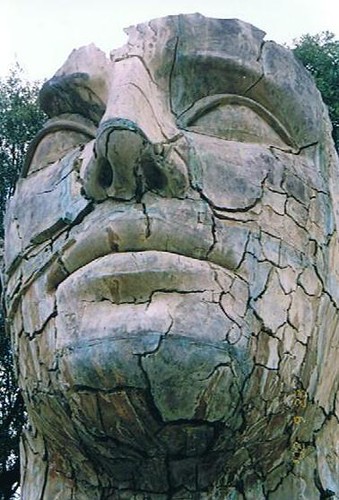|
|
🦋 A labyrinth of fire
"The Theologians" offers an alternate vision of eternity: Months later, when the Council of Pergamo was convened, the theologian entrusted with refuting the errors of the Monotoni was (predictably) John of Pannonia; his learnèd, measured refutation was the argument that condemned the heresiarch Euphorbus to the stake. This has occured once, and will occur again, said Euphorbus. It is not one pyre you are lighting, it is a labyrinth of fire. If all the fires on which I have been burned were brought together here, the earth would be too small for them, and the angels would be blinded. These words I have spoken many times. Then he screamed, for the flames had engulfed him. It is (perhaps) not immediately obvious that eternal recurrence entails the same extension of the present moment I discussed in my last post -- it was not immediately obvious to me. But if the present moment is going to be repeated an infinite number of times, it must have eternal duration. And indeed you can visualize the universe of eternal recurrence with the same four-dimensional model; but instead of a straight vector, the 3-space which we inhabit has to follow a cyclical orbit. I found the end of "The Theologians" confusing: The end of the story can only be told in metaphors, since it takes place in the kingdom of heaven, where time does not exist.* One might say that Aurelian spoke with God and found that God takes so little interest in religious differences that He took him for John of Pannonia. That, however, would be to impute confusion to the divine intelligence. It is more correct to say that in paradise, Aurelian discovered that in the eyes of the unfathomable deity, he and John of Pannonia (the orthodox and the heretic, the abominator and the abominated, the accuser and the victim) were a single person. -- I would have thought the pairing of "orthodox and heretic" would apply, in the context of this story, to Aurelian (or John of Pannonia) in counterpoint to Euphorbus -- that the two churchmen were colleagues with maybe a small rivalry, but both in good graces with the Church. I am missing something here.
 * (And what a marvelous, breathtaking statement this is.)
Update:... on rereading I see that I was giving far too little weight to the rivalry between Aurelian and Pannonia -- this is really the principal subject of the story.
posted evening of Monday, March 22nd, 2010
➳ More posts about The Aleph
➳ More posts about Short Stories
➳ More posts about Jorge Luis Borges
➳ More posts about Readings
➳ More posts about Collected Fictions
➳ More posts about The Theologians
| |
|
Drop me a line! or, sign my Guestbook.
•
Check out Ellen's writing at Patch.com.
| |

